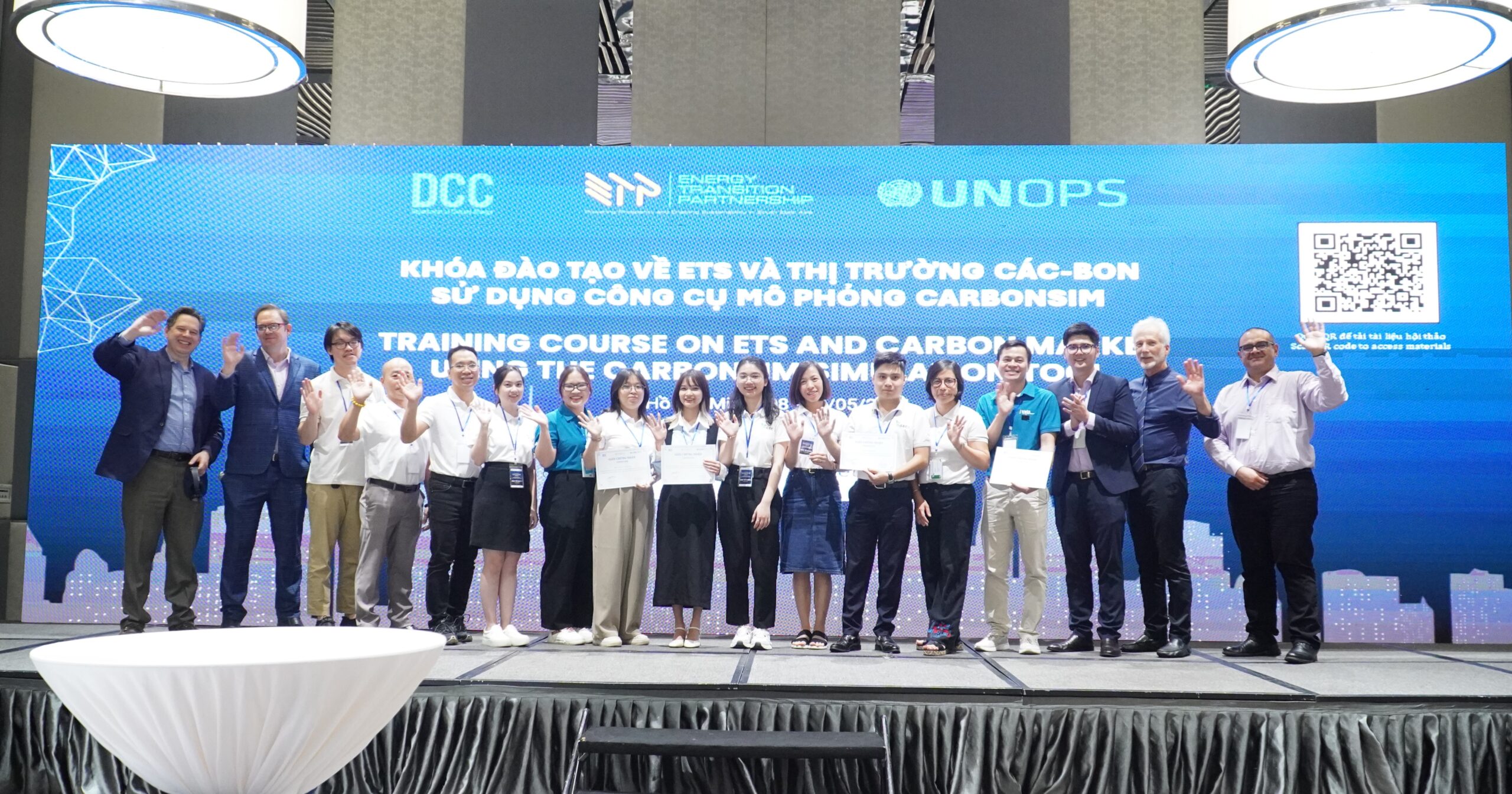02 Trainings success on ETS and Carbon Market in Ho Chi Minh City
10/05/2024
Following the success of two training courses on the Emissions Trading System (ETS) and the carbon market in Hanoi, the next two training courses took place successfully in early May 2024 in Ho Chi Minh City (HCMC). These training courses are part of a series on the ETS and the carbon market, organized under the Technical Assistance (TA) “Training and Simulation of the Emissions Trading System (ETS) in Vietnam.” This TA is supported by the ETP, aiming to promote the development of the carbon market in Vietnam in cooperation with the Department of Climate Change (DCC) and the Ministry of Natural Resources and Environment (MONRE).
The main objective of the TA is to develop and organize training courses on ETS and the carbon market, using the ETS simulation tool tailored to the Vietnam context for various stakeholders including policymakers, research institutes, universities, financial institutions, media representatives, and especially big emitters that will be covered under Vietnam’s ETS in the future.
This is the first capacity-building activity in Vietnam to engage stakeholders from both the public and private sectors with a comprehensive and systematic training program on ETS and the carbon market. The program incorporates the CarbonSim market simulation tool, specifically adjusted to suit the Vietnamese context. Additionally, the website vncarbonmarket.com was established under the TA framework to provide knowledge, raise awareness, and prepare stakeholders for the future ETS in Vietnam.
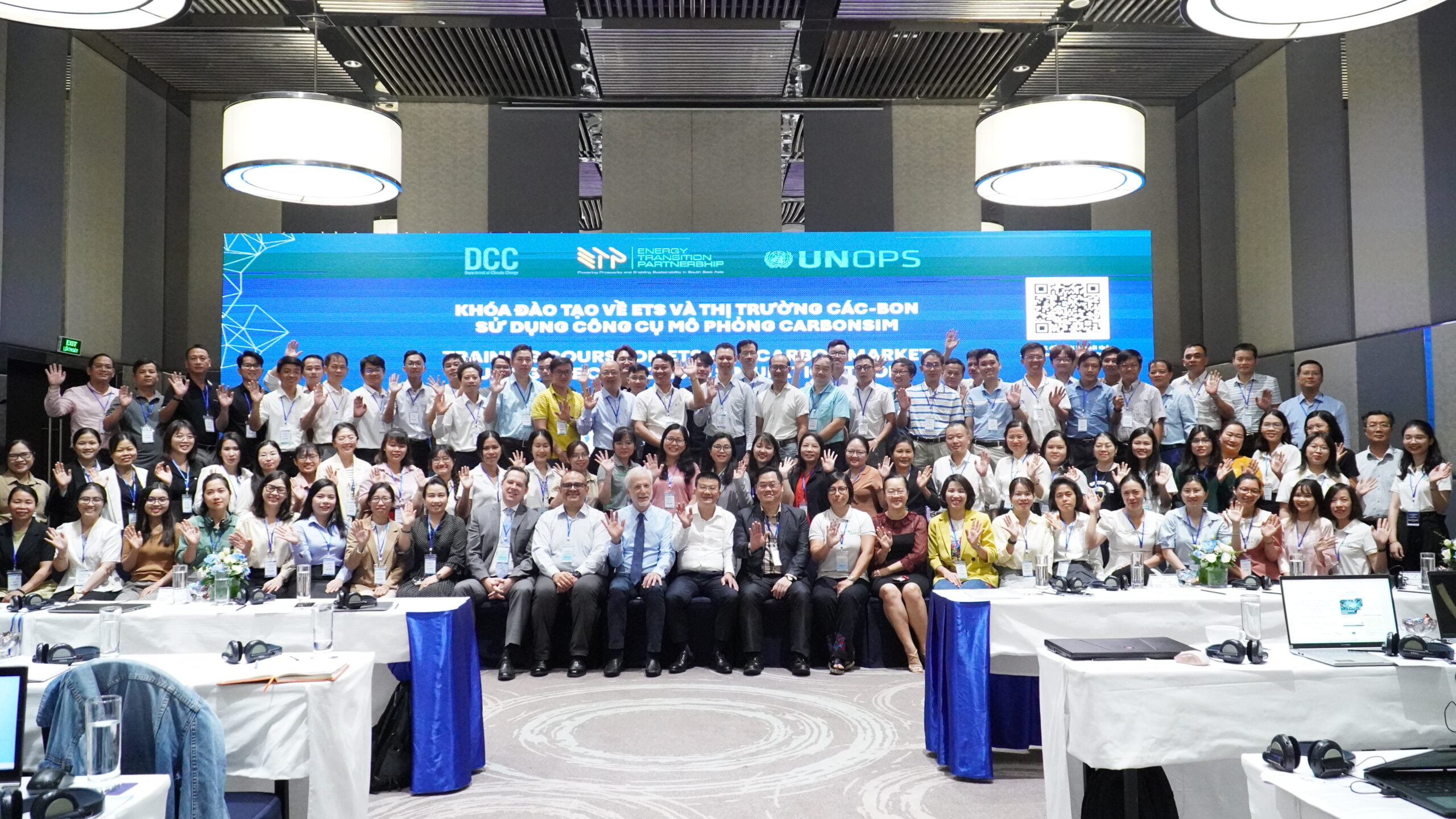
(Photo: The first training course – HCMC)
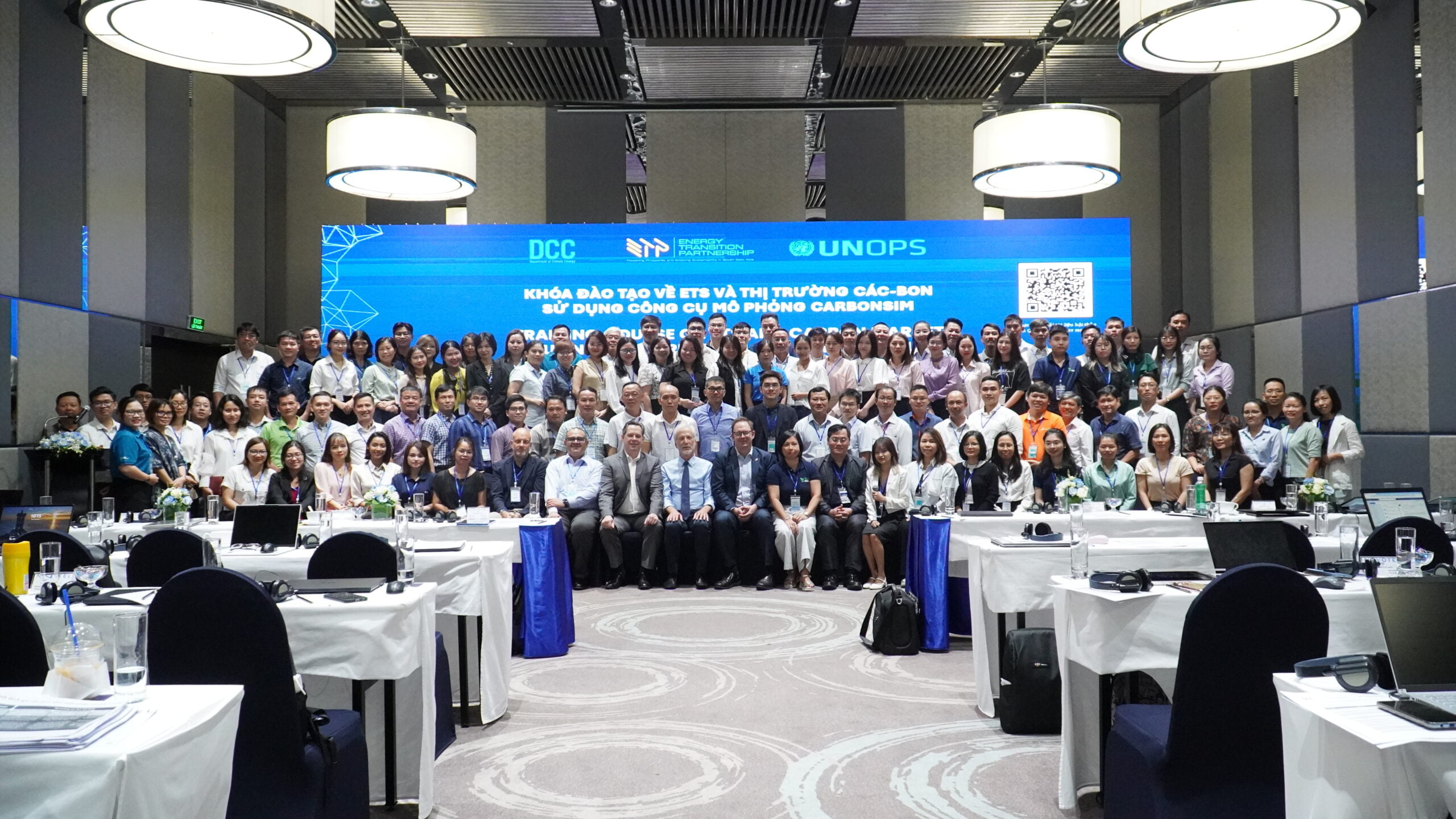
(Photo: The second training course – HCMC)
Two training courses are held consecutively with the first training course taking place from May 6 to 7, 2024 and the second training course taking place on May 8 to 9, 2024. Both training courses in HCMC targeted big emitters, representatives from various regulatory agencies, business associations, and media.
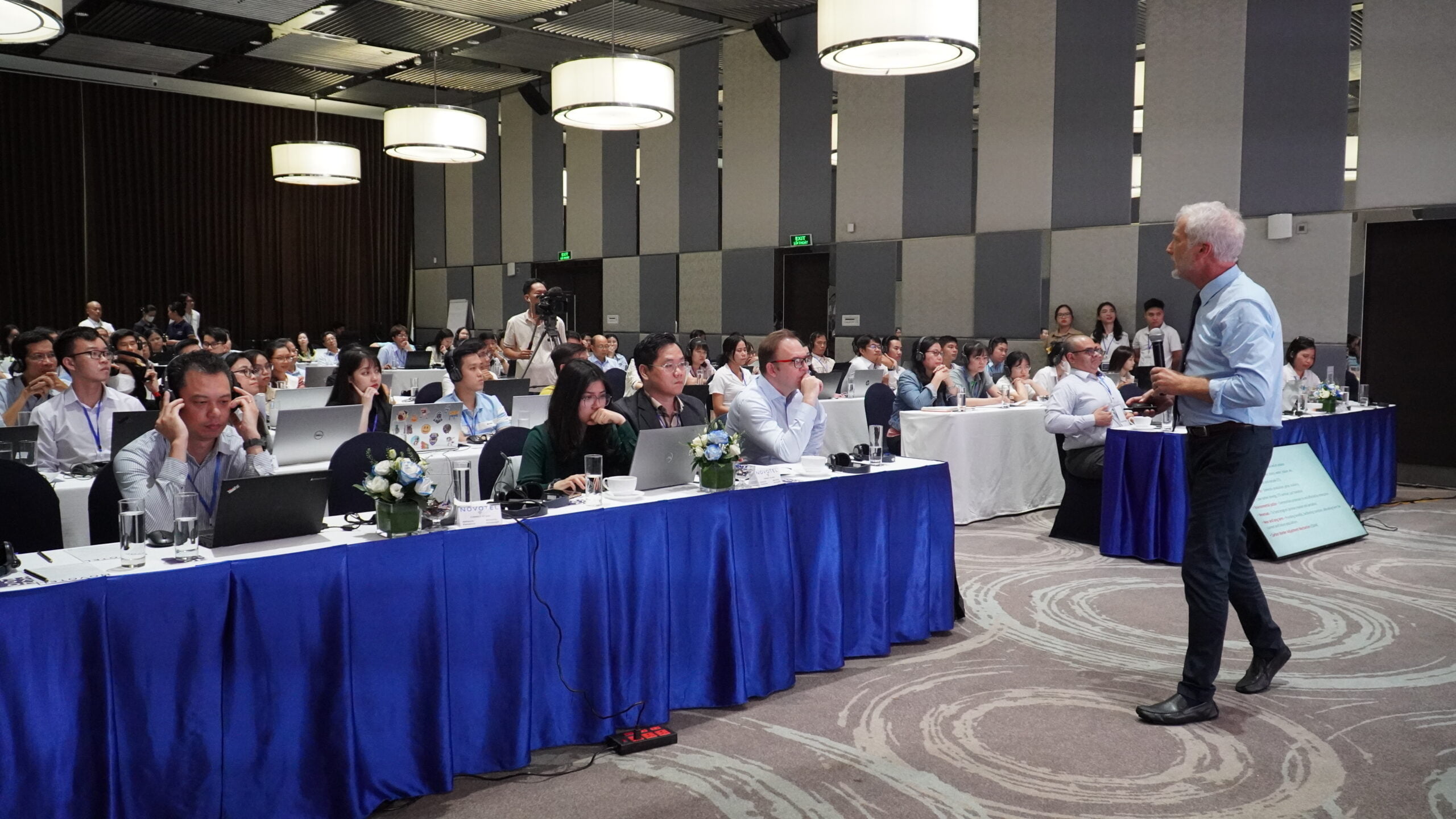
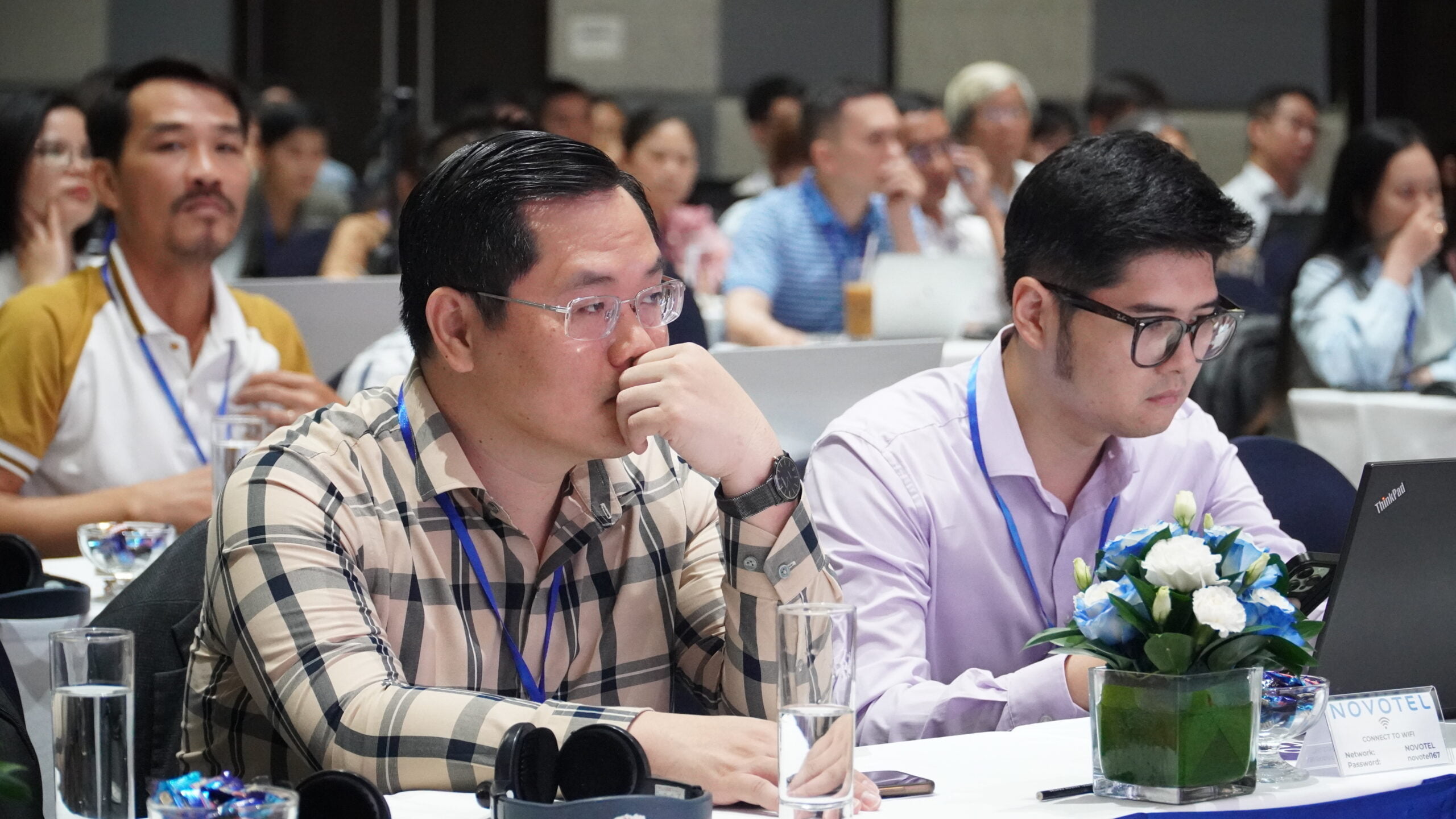
(Photo: Overview of the course)
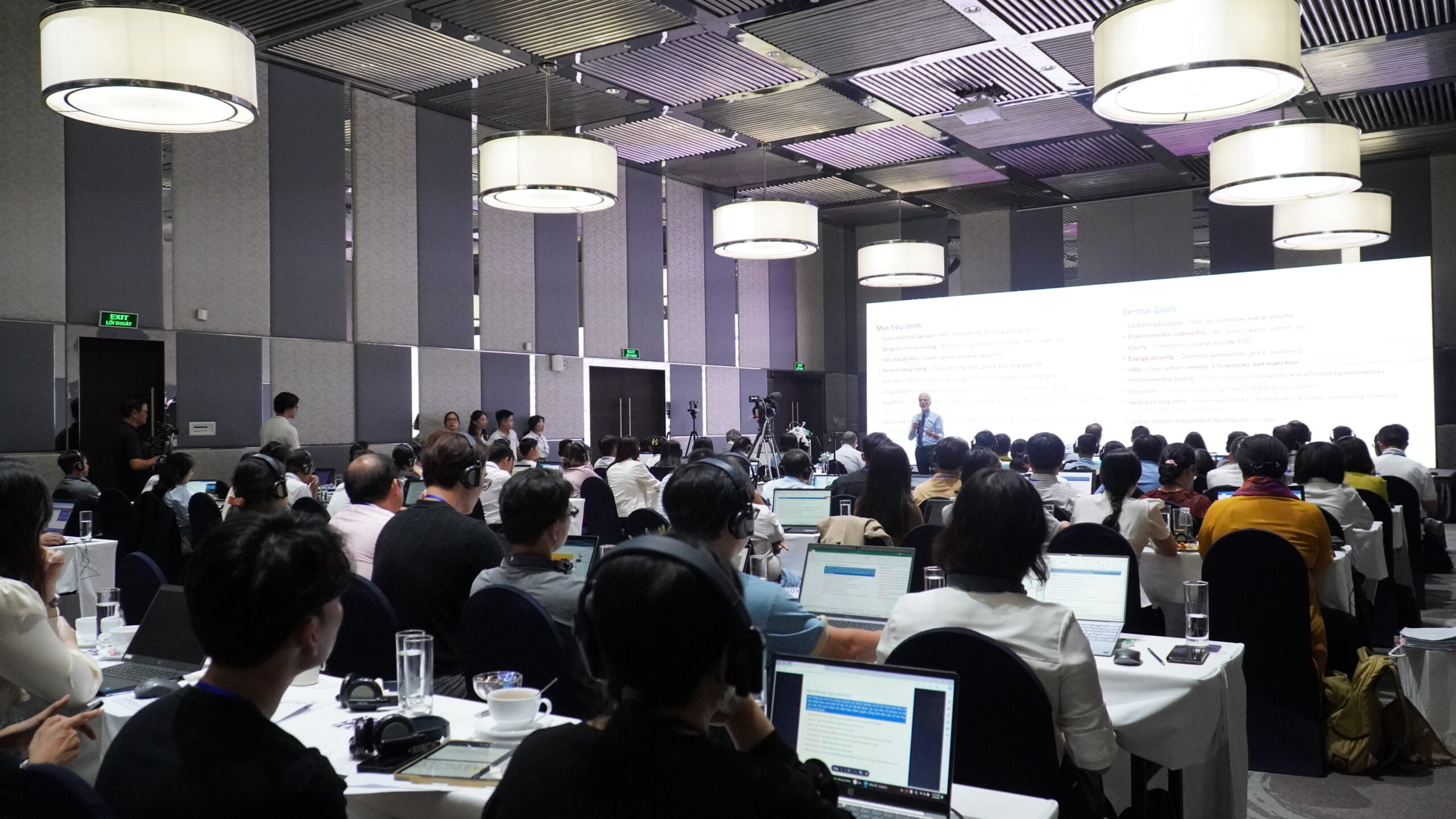
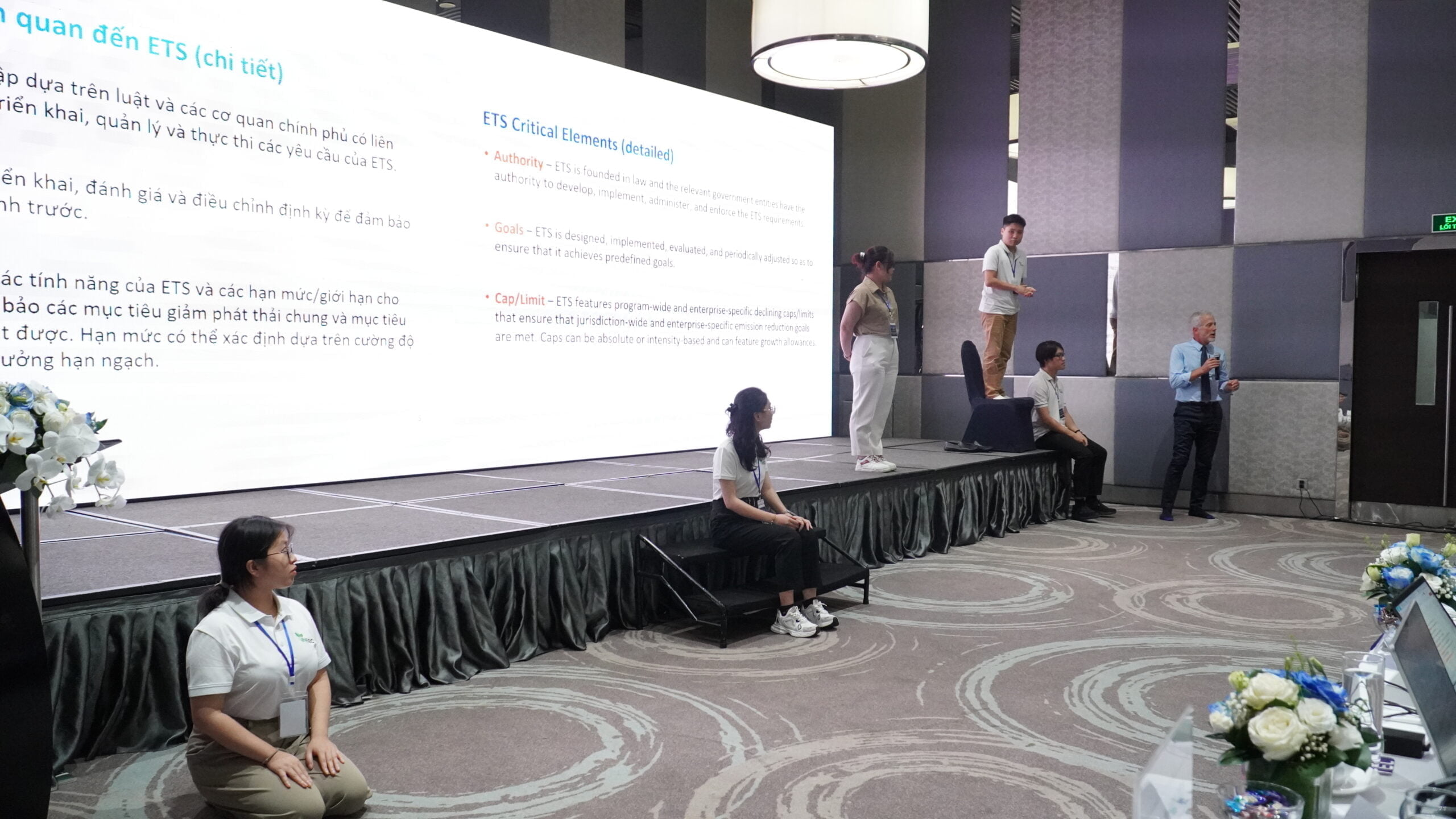
(Photo: Overview of the course)
After opening registration, both training courses in HCMC has attracted great attention from the community, policy makers and especially emission businesses and related organizations.
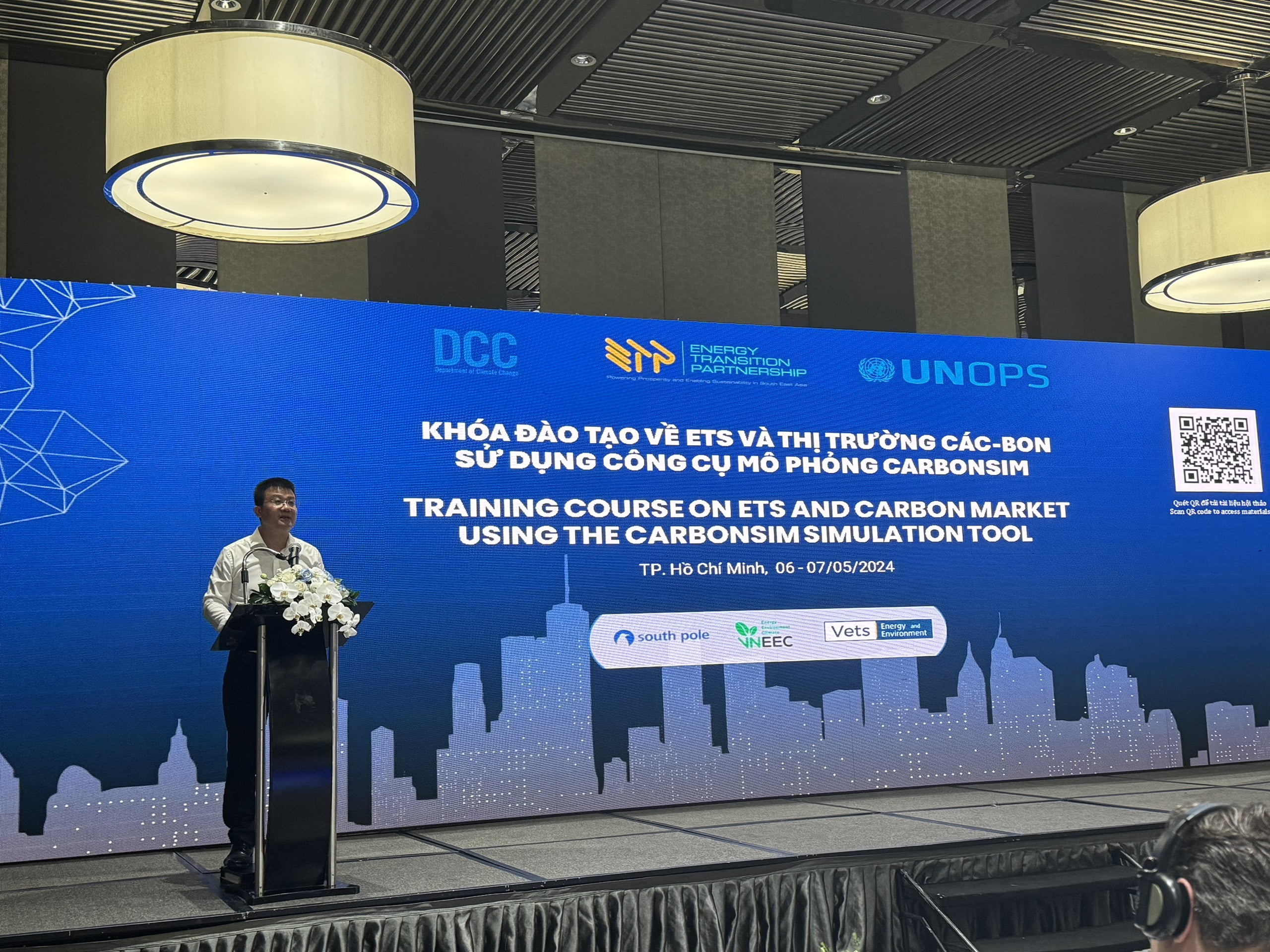
(Photo: Mr. Nguyen Tuan Quang, Deputy Director of the Department of Climate Change)
In the opening remarks at the training course, Mr. Nguyen Tuan Quang, Deputy Director of DCC, stated that climate change is currently occurring vigorously worldwide, affecting all aspects of economics, politics, diplomacy, and security. Each country needs to proactively adapt to mitigate negative impacts while being responsible for reducing greenhouse gas (GHG) emissions to keep global temperature increases to 1.5 degrees Celsius by the end of this century. Implementing GHG emission reductions, developing a green economy, and transitioning energy sources have become inevitable trends.
To achieve GHG emission reduction targets, besides energy transition solutions, energy-saving devices, and the application of advanced, low-emission technologies, many countries have adopted carbon pricing tools. The common carbon pricing tools applied include carbon taxes, emissions trading systems (ETS), and carbon credit offset mechanisms. Currently, approximately 70 countries and territories have implemented carbon pricing tools. Following this global trend, Vietnam has decided to adopt carbon pricing tools, specifically the compliance market, to support GHG emission reduction targets. The development of the carbon market in Vietnam will contribute to achieving GHG emission reduction goals at low costs for businesses and society, promoting the development of low-emission technologies, enhancing the competitiveness of Vietnamese businesses, moving towards a low-carbon economy, and proactively responding to climate change.
To establish and operate a domestic carbon market, the Vietnamese Government has issued a roadmap for implementing the domestic compliance carbon market with the key objective of piloting a carbon credit exchange by 2025 and officially operating it by 2028. MONRE is supporting the Government in finalizing legal frameworks and developing measures and tools for managing allowances and carbon credits, incorporating them into the draft amendment of Decree 06. MONRE is expected to submit this amended decree draft to the Government by July this year. We will proceed concurrently with amending legal regulations and training to raise awareness so that businesses and related organizations understand this operational mechanism and proactively prepare.
The lectures in this training course are developed and delivered by leading international experts in climate change mitigation and carbon pricing. This training initiative comes at a crucial time as Vietnam commits to reducing GHG emissions under the obligations of the Paris Agreement.
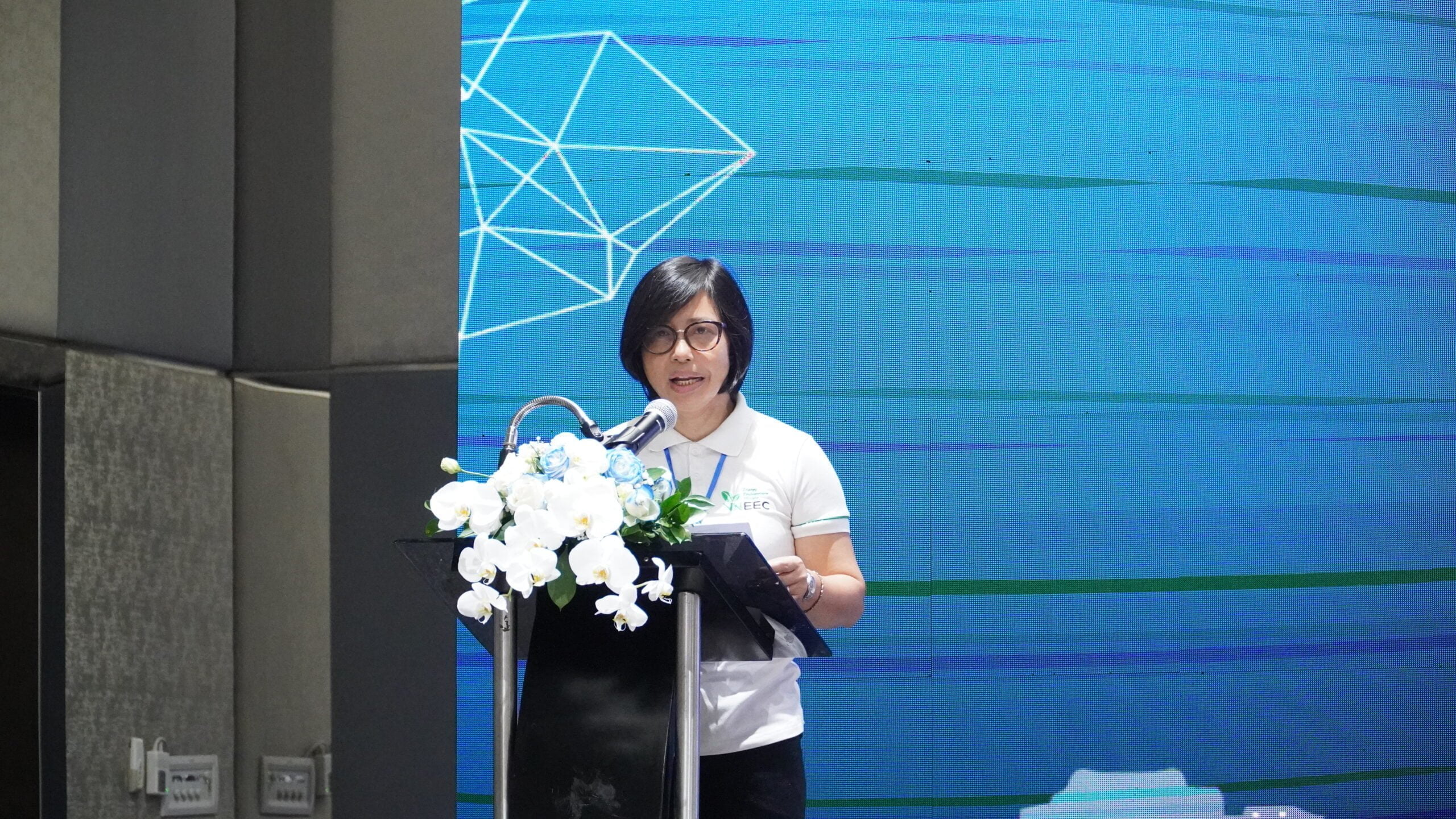
(Photo: Ms. Dang Hong Hanh, Team Leader, Climate Change Policy Expert, Co-Founder, Managing Director of Energy and Environment Consulting Joint Stock Company (VNEEC))
Ms. Dang Hong Hanh, Team Leader and Climate Change Policy Expert, Executive Director of the Energy and Environmental Consultancy Joint Stock Company (VNEEC), stated: “The lectures were developed and delivered by leading international experts in climate change mitigation and carbon pricing. This training initiative takes place at a crucial time as Vietnam commits to reducing GHG emissions under the obligations of the Paris Agreement.”.
The training content focuses on introducing ETS concepts, particularly incorporating the use of the CarbonSim market simulation tool, tailored to the Vietnamese context.
According to Ms. Dang Hong Hanh, with the voluntary target of reducing greenhouse gas emissions by 15.8% and by 43.5% with international support compared to the business-as-usual scenario by 2030, building an effective ETS plays a crucial role in achieving the goals outlined in the Nationally Determined Contributions (NDC).
‘By setting a cap on total emissions and allowing businesses to trade emission allowances, the ETS creates economic incentives for businesses to find solutions to effectively reduce their GHG emissions’- Ms. Hanh noted.

The Organizers conducted a survey for participants to assess their understanding before and after the training course on the fundamental differences between ETS, voluntary carbon markets, compliance carbon markets, and carbon taxes. Survey results show that, before participating in the course, up to 57.8% of participants only had a limited understanding and only 4.62% could distinguish these concepts.
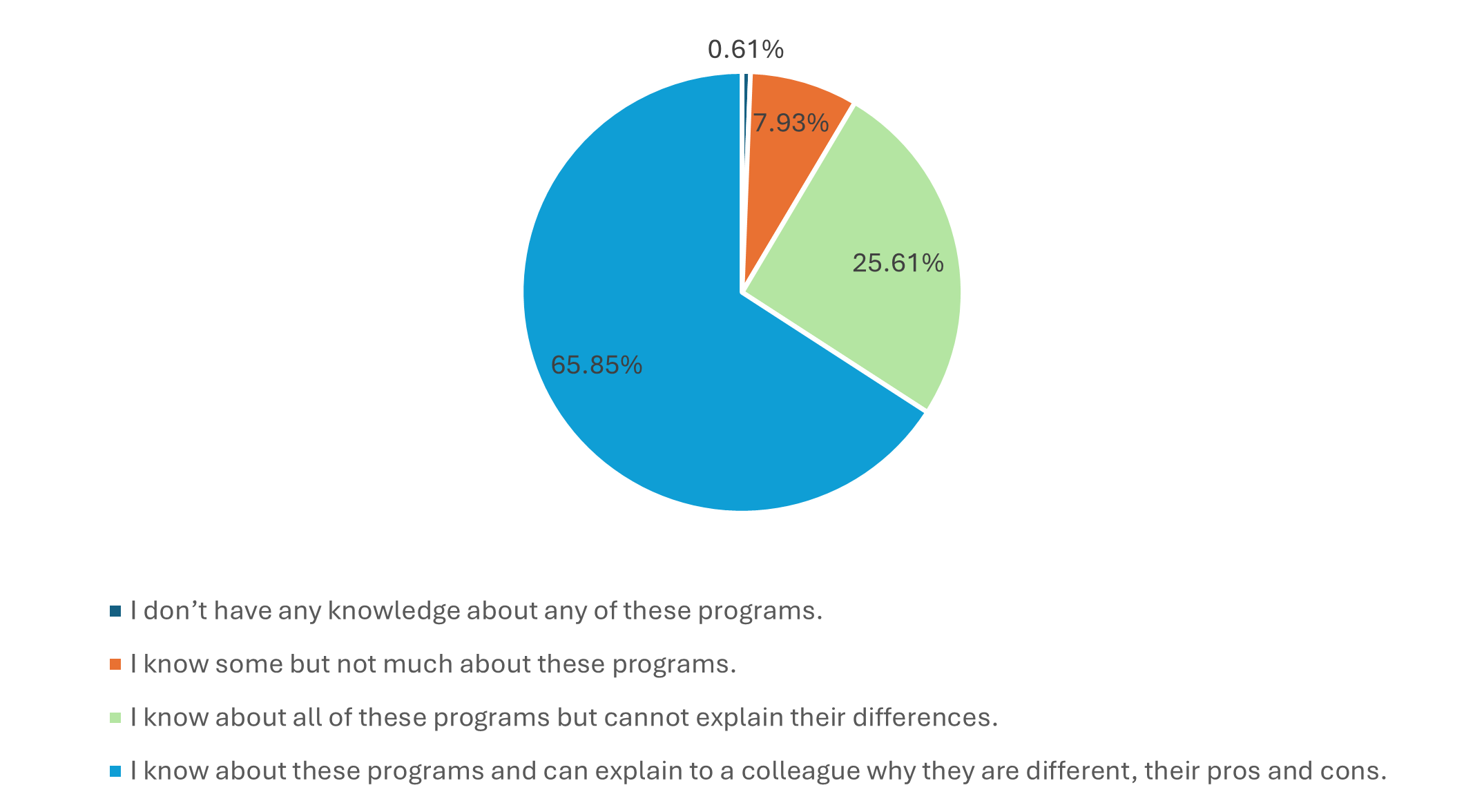
After finishing the course, the survey showed impressive results of the training course when the proportion of course participants who had an understanding of these concepts and could explain them to colleagues increased significantly from 4.62% to 65.85%.
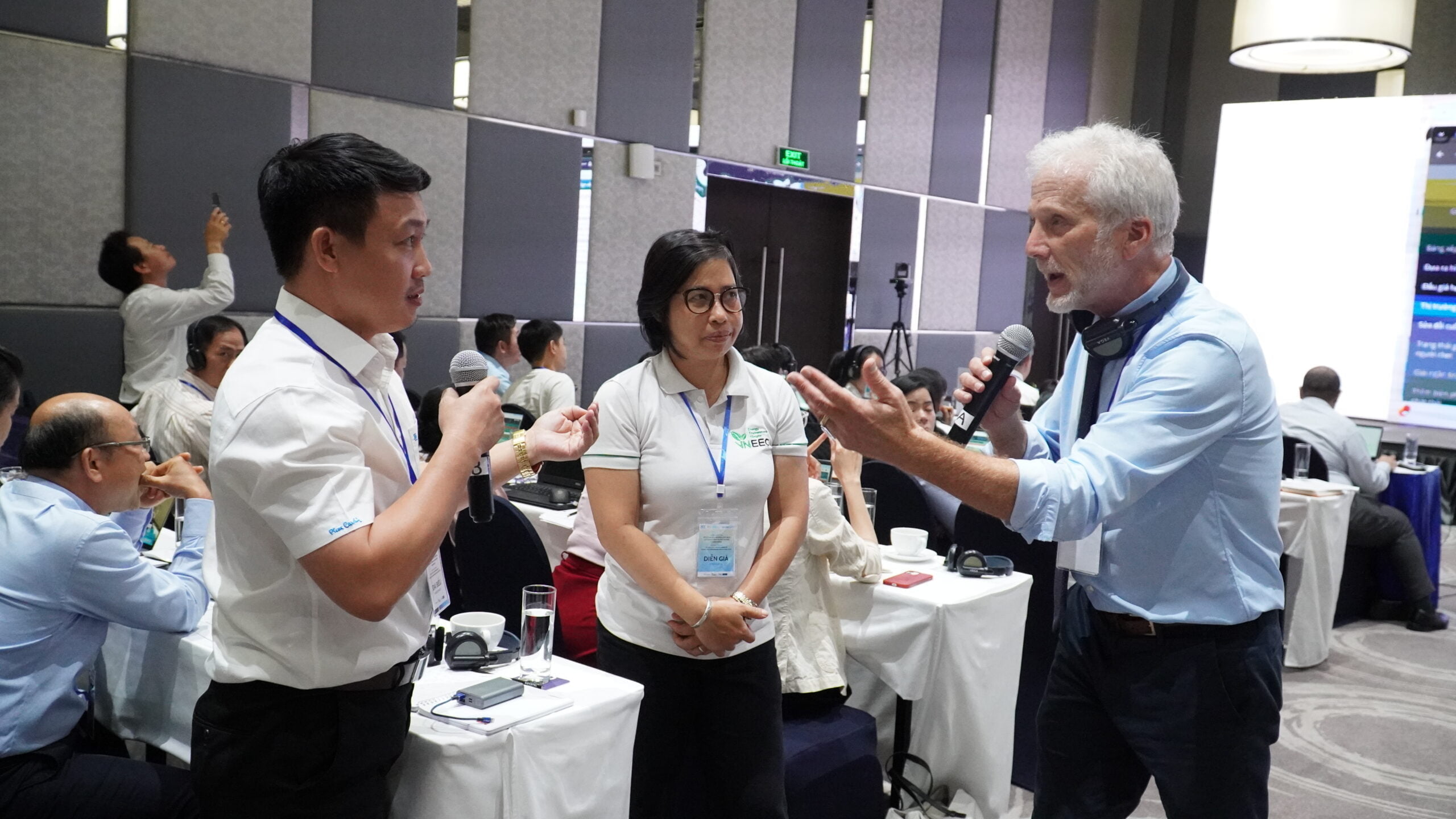
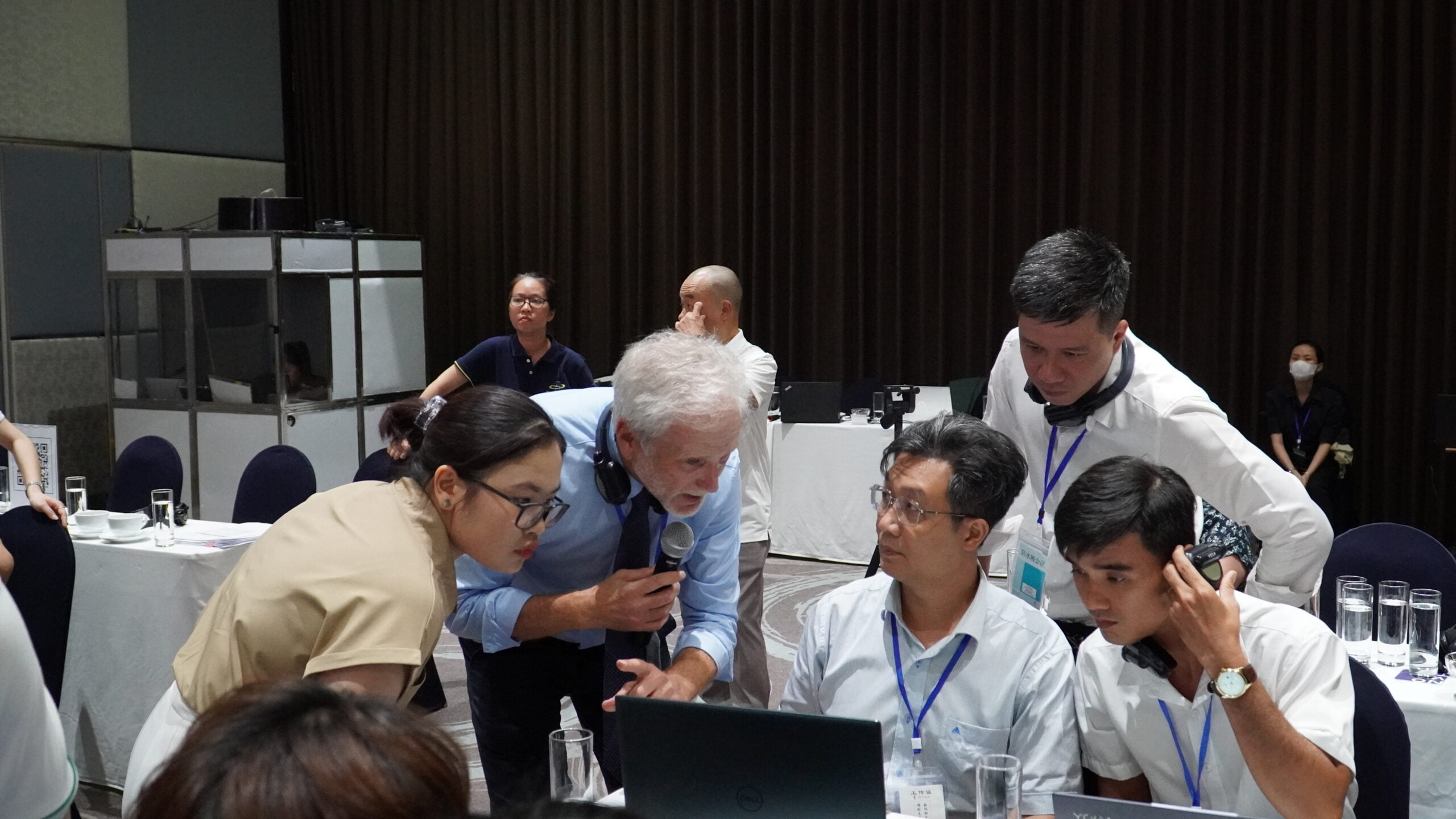
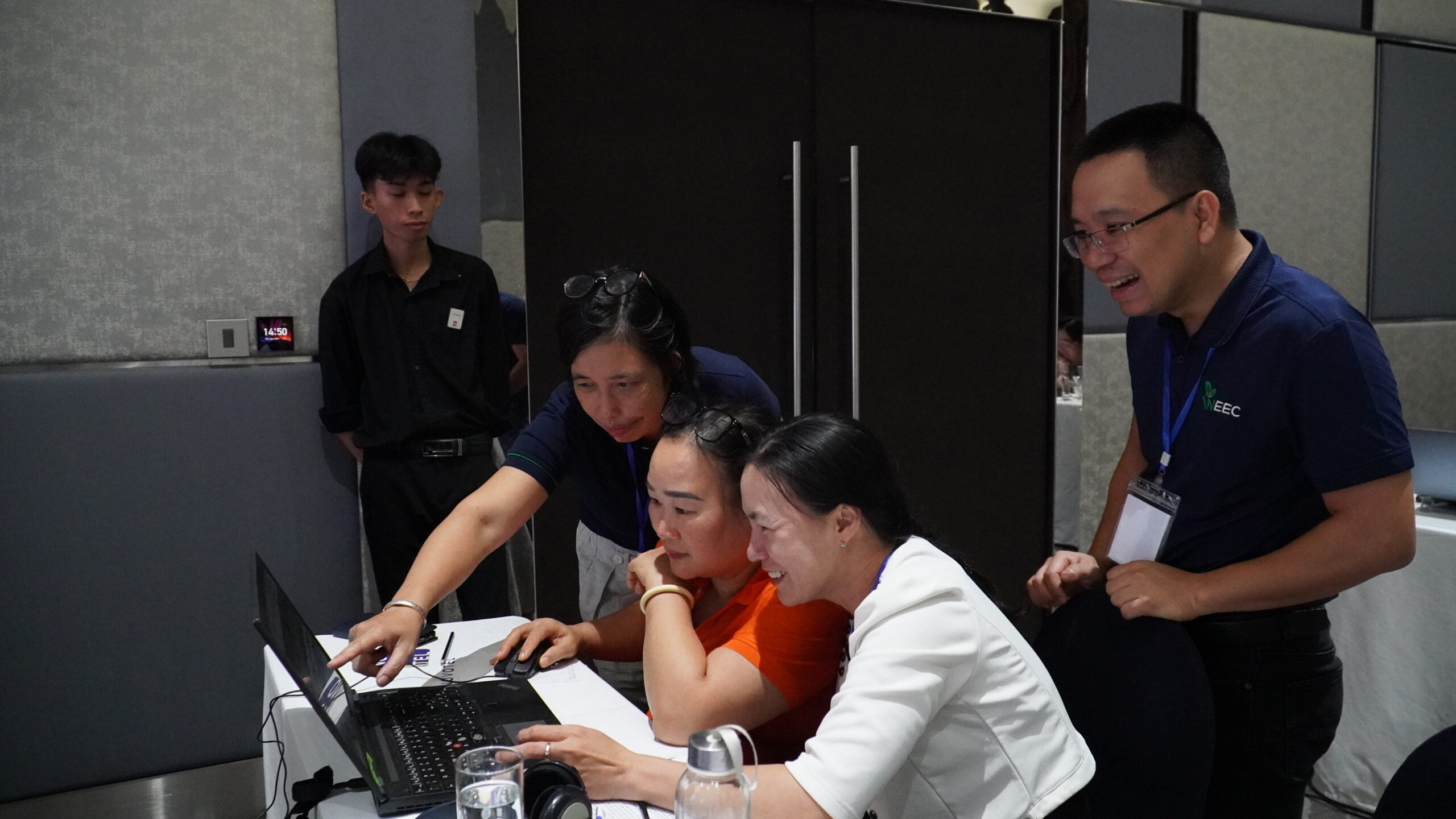
(Photo: Market simulation class)
The training course on ETS and carbon markets took place in an exciting way with practice using the CarbonSim simulation tool coordinated and guided by Mr. Josh Margolis – carbon simulation expert, author of the development. develops and operates CarbonSim. Participants responded that the training sessions were not only highly interactive but also provided valuable practical knowledge. Delegates actively shared their personal feelings about the learning experience. The majority agreed: “The course was really great, opened up many new insights for me”, “The training organization was very professional and exceeded expectations”, and many other positive feedback.
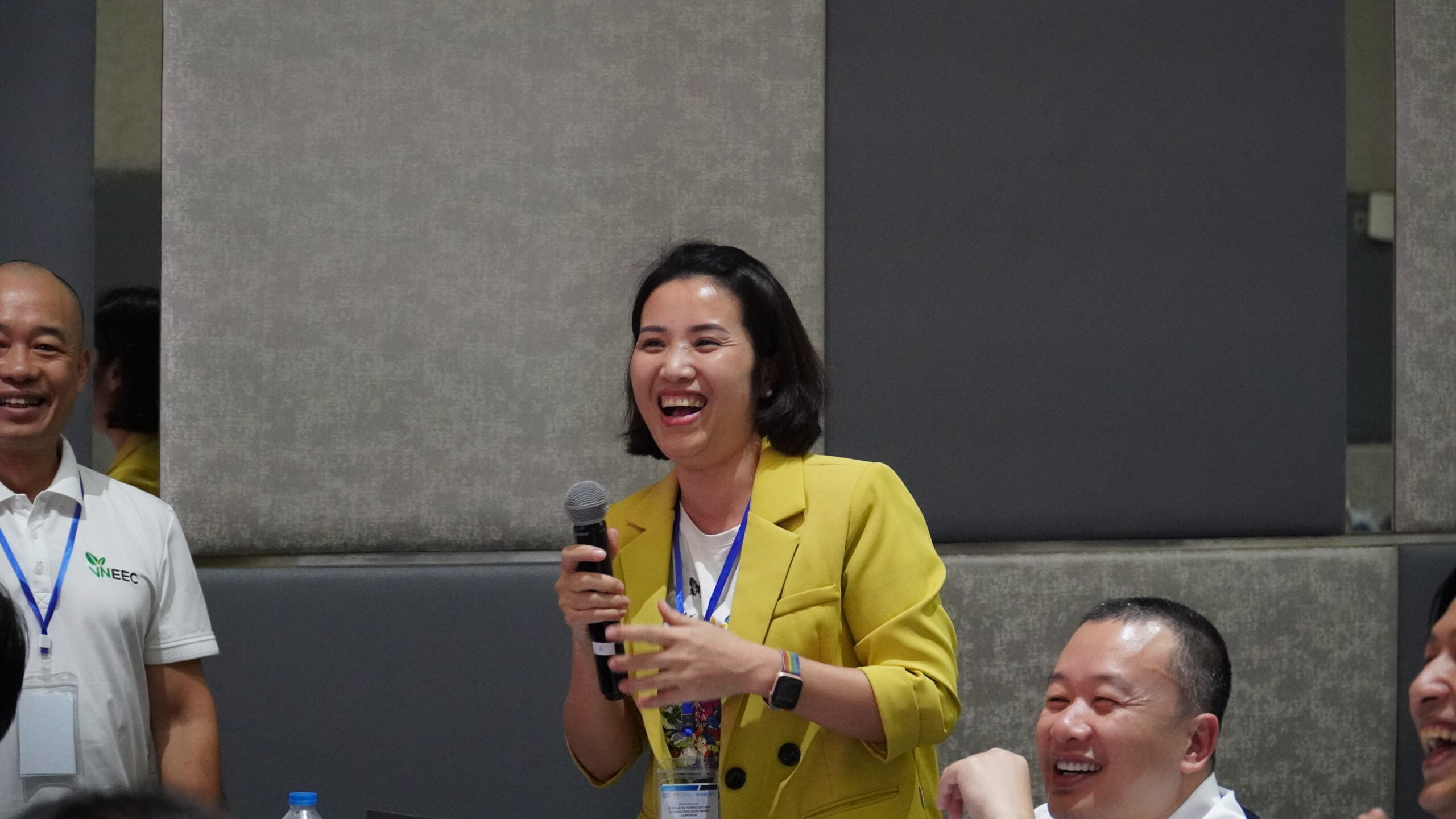
(Photo: Participants expressing their feelings)
By participating in the course, attendees are provided with basic knowledge about the ETS and the carbon market, as well as the opportunity to practice using the CarbonSim market simulation tool. This equips them and their organizations with the essential understanding needed to pioneer decision-making for their enterprises and organizations in response to the challenges of climate change, particularly to engage in the ETS and the domestic carbon market in the near future.
